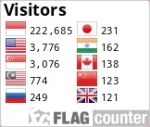Succession of Regional Heads Based on Kinship Relations Judging Concept of the Pancasila Legal State
DOI:
https://doi.org/10.26623/jic.v9i2.8849Keywords:
Succession, Regional Head, Dynasty PoliticsAbstract
This research aims to examine in depth the existence of succession for Regional Heads using kinship relations in terms of the concept of the rule of law and formulate the implications of succession for Regional Heads based on kinship relations for the implementation of government duties in the region in the context of the rule of law. Indonesia, as stated in its constitution, adheres to the concept of a rule of law, this is attached to Article 1 paragraph (3) of the 1945 Constitution "Indonesia is a rule of law". One indicator of the application of the concept of the rule of law in a sovereign state is the limitation of power in administering the state. The problem studied in this research is related to how the succession of Regional Heads is related to kinship relations in terms of the concept of the rule of law. The research method used in this research is normative juridical, where the author examines through literature study and analyzes based on various relevant literature. Succession of Regional Heads based on kinship relations in Indonesia has recently become a disturbing phenomenon. As an effort to limit the existence of dynastic politics, this has been done by issuing "Law Number 8 of 2015 concerning Amendments to Law Number 1 of 2015 concerning the Determination of PERPPU Number 1 of 2014 concerning the Election of Governors, Regents and Mayors, especially in Article 7 letter r" However, this provision was canceled by the Constitutional Court with the issuance of "Constitutional Court Decision Number 33/PUU-XIII/2015". So, the absence of regulations that provide restrictions on this phenomenon has caused the succession of Regional Heads based on kinship relations to become a bad precedent in state administration Rampant updates to this research are expected by the government and the DPR to issue regulations that place restrictions on incumbents being involved in conflicts of interest in the succession of regional heads who have kinship relationships
References
Asshiddiqie, Jimly. “Gagasan Negara Hukum Indonesia.” 2011.
———. Hukum Tata Negara & Pilar-Pilar Demokrasi. Jakarta: Sinar Grafika, 2011.
———. Konstitusi & Konstitutionalisme Indonesia. Jakarta: Mahkamah Konstitusi Republik Indonesia dan Pusat Studi Hukum Tata Negara Fakultas Hukum Universitas Indonesia, 2004.
———. Konstitusi Keadilan Sosial: Serial Gagasan Konstitusi Sosial Negara Kesejahteraan Sosial Indonesia. Jakarta: Kompas Media Nusantara, 2018.
Bagir Manan. Politik Perundang-Undangan Dalam Rangka Mengantisipasi Liberalisasi Perekonomian. Bandar Lampung: FH-UNILA, 1996.
Bathoro, Alim. “Perangkap Dinasti Politik Dalam Konsolidasi Demokrasi.” Jurnal FISIP UMRAH 2, no. 2 (2011): 115–25.
Darmansyah, Ramlan, Siti Desma Syahrani, and Zulfa Harirah MS. “Potret Dinasti Politik Dalam Pengisian Jabatan Administratif.” Journal of Political Issues 2, no. 1 (2020): 34–46. https://doi.org/10.33019/jpi.v2i1.28.
Eduardus Marius Bo. Teori Negara Hukum & Kedaulatan Rakyat. Malang: Setara Press, 2019.
Farida Azzahra, and Indah Fitriani Sukri. “Politik Dinasti Dalam Pemilihan Kepala Daerah: Persimpangan Antara Hak Asasi Dan Demokrasi.” Japhtn-Han 1, no. 1 (2022): 105–19. https://doi.org/10.55292/japhtnhan.v1i1.27.
Fitriyah. “Partai Politik, Rekrutmen Politik Dan Pembentukan Dinasti Politik Pada Pemilihan Kepala Daerah (Pilkada)‘.” Politika: Jurnal Ilmu Politik 11, no. 1 (2020): 1–17. https://doi.org/https://doi.org/10.14710/politika.11.1.2020.1-17.
Hady, Nuruddin. “Implikasi Putusan Mahkamah Konstitusi Nomor: 33/Puu-Xiii/2015 Dalam Upaya Memutus Dinasti Politik Dan Antisipasi Pada Pilkada Mendatang.” Arena Hukum 11, no. 3 (2018): 484–99. https://doi.org/10.21776/ub.arenahukum.2018.01003.4.
Hermawan, Malsal Jajuli Haerudin, and Rini Irianti Sundary. “Praktik Politik Uang Dalam Pemilihan Kepala Desa Dihubungkan Dengan Asas Jujur Dan Adil Dalam Pemilihan Umum.” Bandung Conference Series: Law Studies 2, no. 2 (2022): 1043–50. https://doi.org/10.29313/bcsls.v2i2.2556.
Khairi, Halilul. “Menakar Pengaruh Politik Dinasti Dalam Pemilihan Kepala Daerah Di Indonesia.” JWP (Jurnal Wacana Politik) 7, no. 1 (2022): 35. https://doi.org/10.24198/jwp.v7i1.37770.
Konstitusi, Pusat Pendidikan Pancasila Dan Mahkamah Konstitusi. Modul Pendidikan Negara Hukum Dan Demokrasi. Pusat Pendidikan Pancasila Dan Konstitusi Mahkamah Konstitusi. Vol. 29, 2016.
Muslikhah, Umi, Wira Atma Hajri, and Dasul Santoso. “Political Dynasty and Its Implications for People’s Welfare.” International Journal of Innovation, Creativity and Change 10, no. 2 (2019): 246–52.
Muslikhah, Umi, Halimah Nur Izzati, and Ahmad Fuadi. “Keberadaan Politik Kekerabatan Dalam Konsep Negara Hukum Pancasila.” UIR LAW review 6, no. 1 (2022). https://doi.org/https://doi.org/10.25299/uirlrev.2022.vol6(1).15558.
Nika, Imroatun. “Mencegah Terbentuknya Dinasti Politik Melalui Pola Rekrutmen Partai Politik (Studi Kasus Pencalonan Kepala Daerah Di Solo 2020).” Jurnal Lex Renaissance 6, no. 3 (2021): 562–77. https://doi.org/10.20885/jlr.vol6.iss3.art9.
Nurfurqon, Ardika. “Politik Hukum Otonomi Daerah Studi Terhadap Desentralisasi Asimetris Di Indonesia.” Khazanah Hukum 2, no. 2 (2020): 73–81. https://doi.org/10.15575/kh.v2i2.8504.
Putusan Mahkamah Konstitusi No. 33/PUU-XIII/2015 (2015).
Rasyad, Aslim. Metode Ilmiah: Persiapan Bagi Peneli. Pekanbaru: UNRI Press, n.d.
Saleh, Ismail. Faham Negara Hukum Yang Dianut Di Indonesia, Ilmu Negara, Konstitusi Dan Keadilan. Jakarta, 2007.
Sanjaya, Dixon, and Daly Erni. “Kewenangan Pengundangan Peraturan Perundang-Undangan : Perkembangan Pengaturan Dan Peralihan Kewenangan.” Jurnal USM Law Review 7, no. 1 (2024): 208–25. https://doi.org/http://dx.doi.org/10.26623/julr.v7i1.8141.
Sinaga, Budiman N P D. Hukum Tata Negara, Perubahan Undang-Undang Dasar. Jakarta: PT Tata Nusa, 2009.
Soerjono Soekanto, and Sri Mamudji. Penelitian Hukum Normatif Suatu Tinjauan Singkat. Jakarta: Raja Grafindo, 2003.
Sudarmanto, Kukuh. “Hukum Administrasi Dan Sistem Peradilan di Indonesia Yang Berkeadilan Sesuai Asas-Asas Pancasila.” Jurnal Ius Constituendum 6, no. 2 (2021). https://doi.org/10.33476/ajl.v3i1.838.
Susilo, Tri, Wahyu Aji, and Suryo Pratolo. “Pengaruh Politik Dinasti Dan Sistem Pengendalian Internal Terhadap Kinerja Pemerintah Daerah Dengan Akuntabilitas Pelaporan Sebagai Variabel Pemediasi: Studi Empiris Pada Pemerintah Daerah Di Indonesia Tahun 2012-2015‘.” Reviu Akuntansi Dan Bisnis Indonesia 1, no. 2 (2019): 153–70. https://doi.org/https://doi.org/10.18196/rab.020229.
Syaefudin, Muhammad. “Kewenangan Dewan Kehormatan Penyelenggara Pemilu ( DKPP ) Dalam Menegakan Kode Etik Pelanggaran Pemilihan Umum.” Jurnal USM Law Review 2, no. 1 (2019): 104. https://doi.org/10.26623/julr.v2i1.2261.
Tanjung, Muhammad Anwar, and Politik Dinasti. “PORTRAITS OF JUSTICE IN THE POLITICS OF THE ELECTION OF REGIONAL HEAD IN INDONESIA.” Jurnal Ius Constituendum 6, no. April 2021 (2021): 144–65. https://doi.org/http://dx.doi.org/10.26623/jic.v6i1.2739.
UIR, Tim Penulis Dosen HTN. Hukum Tata Negara Indonesia. Jakarta: PT. Raja Grafindo Persada, 2020.
Widiatama, Widiatama, Hadi Mahmud, and Suparwi Suparwi. “Ideologi Pancasila Sebagai Dasar Membangun Negara Hukum Indonesia.” Jurnal USM Law Review 3, no. 2 (2020): 310. https://doi.org/http://dx.doi.org/10.26623/julr.v3i2.2774.
Downloads
Additional Files
Published
Issue
Section
License
The journal holds the copyright for each article published with work licensed simultaneously under a Creative Commons Attribution 4.0 International License, which allows others to share the work with an acknowledgment of the authorship and early publication of the work in this journal.










